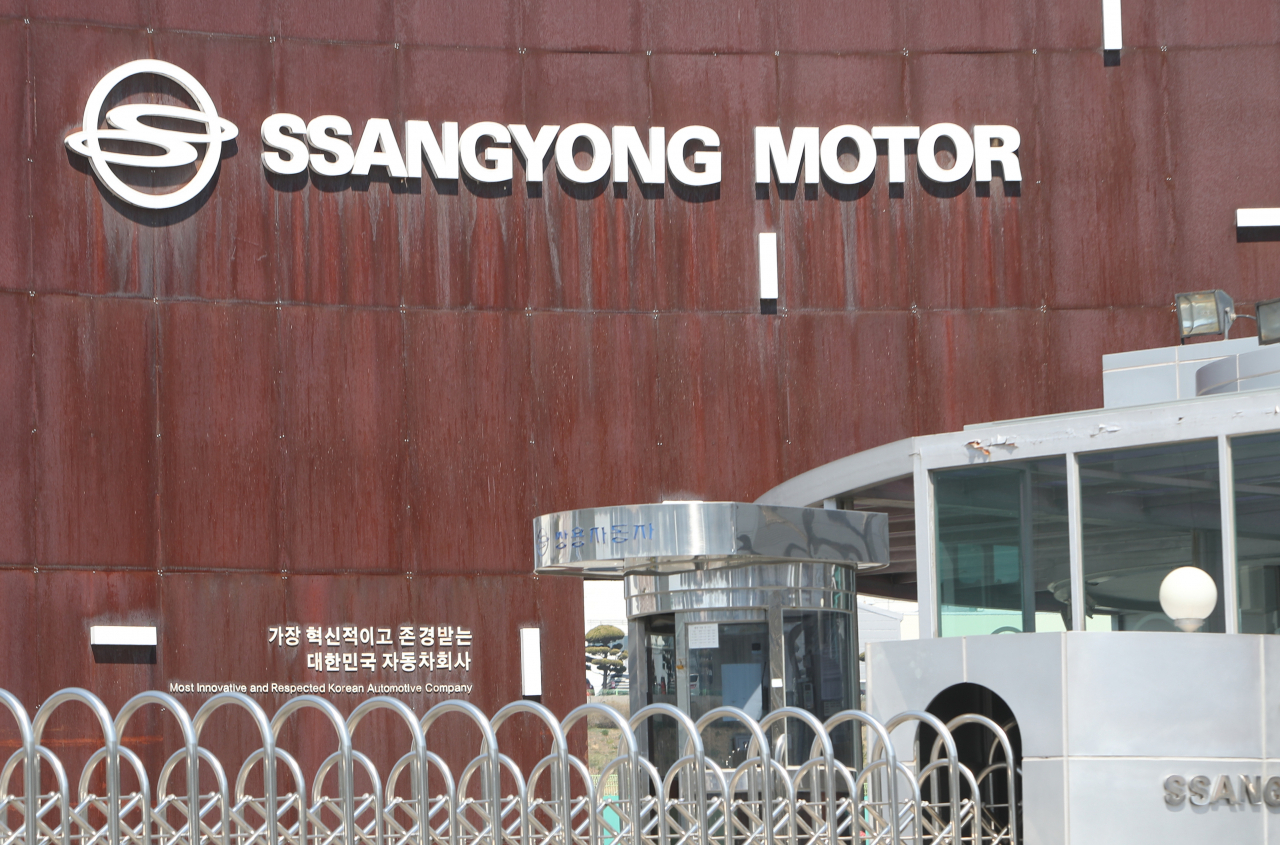 |
This file photo, taken April 5, 2021, shows SsangYong Motor's plant in Pyeongtaek, 70 kilometers south of Seoul. (Yonhap) |
SsangYong Motor Co. was placed under court receivership once again Thursday as its Indian parent Mahindra & Mahindra Ltd. has failed to attract an investor amid the prolonged COVID-19 pandemic and its financial status is further worsening.
The Seoul Bankruptcy Court approved the debt-rescheduling process for SsangYong Motor as US vehicle importer HAAH Automotive Holdings Inc. didn't submit a letter of intent (LOI) to acquire the financially troubled carmaker.
Mahindra had been in talks with HAAH to sell its majority stake in the Korean unit as part of its global reorganization plan amid the pandemic.
The court demanded the sole potential investor submit an LOI through SsangYong by March 31, but the US company didn't send the documents.
This is the second time for the SUV-focused carmaker to be under court receivership after undergoing the same process a decade ago.
Court receivership is one step short of bankruptcy in South Korea's legal system. In receivership, the court will decide whether and how to revive the company.
SsangYong filed for court receivership on Dec. 21 after failing to obtain approval for the rollover of 165 billion won ($148 million) worth of loans from creditors. But it obtained a three-month suspension of its obligation to pay the debts due to the talks with HAAH.
Under court receivership, SsangYong's survival depends on whether there will be a new investor to acquire a streamlined SsangYong after debt settlement and other restructuring efforts.
As the process begins, the accounting firm EY Hanyoung will conduct due diligence on the carmaker's financial status to figure out its overall debt size and to decide on whether the company's going concern value is bigger than its liquidation, court spokeswoman Kim Joo-mi said over the phone.
EY Hanyoung is required to submit its financial report on SsangYong to the court by June 10, she said.
SsangYong reportedly has yet to pay 370 billion won in wages to its employees and payments to its subcontractors.
Given this, the carmaker's liquidation appears to be inevitable, but massive job cuts could be a burden for authorities in the run-up to the presidential election next year. SsangYong currently hires 4,500 people.
The court usually opens an auction for a company under its receivership after an accounting firm's due diligence, but it will put up SsangYong Motor for sale in an auction before EY Hanyoung completes the financial report on the carmaker, the court spokeswoman said.
Court-appointed administrator Chung Yong-won, who served as planning executive at SsangYong, will be in charge of the auction as the carmaker has several potential investors, SsangYong said in a statement.
Last week, SsangYong Motor President and Chief Executive Yea Byung-tae stepped down, taking responsibility for failing to attract investment from HAAH.
China-based SAIC Motor Corp. acquired a 51 percent stake in SsangYong in 2004 but relinquished its control of the carmaker in 2009 in the wake of the 2008-09 global financial crisis.
In 2011, Mahindra acquired a 70 percent stake in SsangYong for 523 billion won and now holds a 74.65 percent stake in the SUV-focused carmaker.
Mahindra has said it does not have a plan to inject fresh capital into SsangYong and will give up its status as the biggest shareholder of the Korean unit if it finds a new investor.
KPMG Samjong Accounting Corp., the auditor of SsangYong, declined to give its opinion on the carmaker's annual financial statements for the year 2020.
SsangYong could be delisted if its accounting firm again refuses to offer an opinion on the company's annual performance for the following year after the one-year period. (Yonhap)








